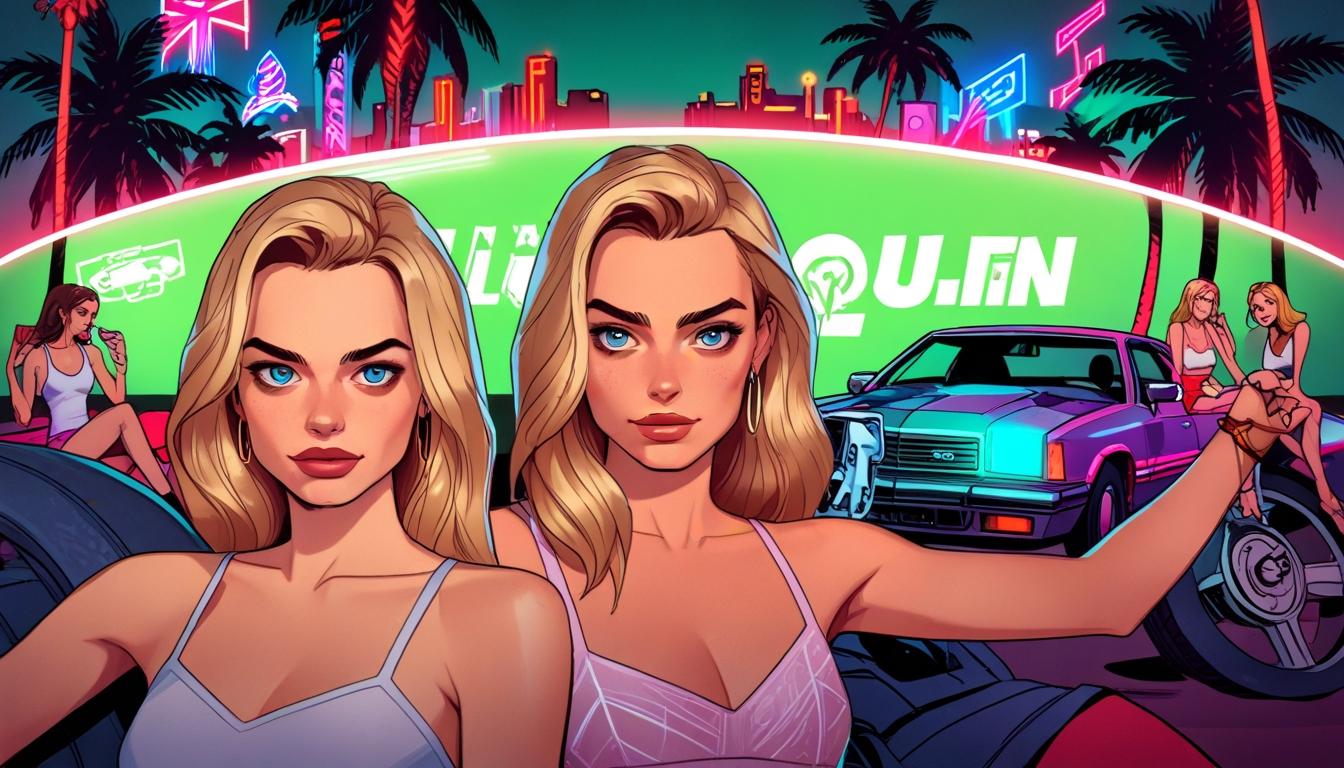Margot Robbie and Sydney Sweeney, two of Hollywood’s most sought-after actresses, have recently been connected with multiple film projects based on video games, signalling a notable trend in the entertainment industry. Robbie’s production company, LuckyChap, is set to produce a movie adaptation of The Sims, the widely popular life simulation game. Meanwhile, Sweeney will both produce and star in several video game-inspired films, including OutRun—a movie based on the classic 1986 arcade car-racing game—and another project based on the contemporary title Split Fiction.
This shift highlights an emerging focus in Hollywood on adapting video games into films, expanding beyond the long-dominant superhero genre. Despite the continuing presence of superhero movies, such as Marvel’s latest release Thunderbolts kicking off the summer season, video game movies are increasingly capturing audience attention. Over recent years, they have produced some of the highest-grossing films based on video games, including A Minecraft Movie, which continues to perform well at the box office.
The history of video game movies has been largely characterised by mixed success for several decades. Early attempts to bring games to the big screen often fell short; for instance, the Super Mario Bros. movie faced criticism and underperformance, while the Tomb Raider film series had a mixed run of hits and flops. Moreover, popular films inspired by video game culture, such as Wreck-It Ralph and Free Guy, were not direct adaptations of actual games but rather storylines inspired by gaming themes. Films like the Resident Evil series, overseen by director Paul WS Anderson, adapted the game’s premise with a personalised directorial style rather than strict adherence to the source material.
In contrast, the latest wave of video game adaptations have been tailored more directly for devoted fans, particularly younger demographics who grew up with these games. Movies based on Minecraft, Super Mario Bros, Sonic the Hedgehog, and Five Nights at Freddy’s strive to appeal to super-young audiences and nostalgic adults alike. This reflects the growing cultural significance of video games across millennials, Generation Z, and Generation Alpha, paralleled to the long-standing influence of comic books on superhero movies.
While there is optimism about the potential of video game films, not all adaptations have been blockbuster hits. For example, Until Dawn, adapted from a horror survival game, received a more modest reception, reflecting the challenges of bringing less mainstream games to the screen. Furthermore, projects involving Robbie and Sweeney—such as The Sims and Split Fiction—do not yet carry the broad, established appeal of franchises like Minecraft or Mario.
Hollywood executives remain cautious, often favoring properties with proven longevity and recognisable legacies. Even iconic characters like Marvel’s Thor have longer histories than some of the recently adapted games. The involvement of filmmakers like Michael Bay in producing a movie based on OutRun—a game that lacks the iconic status of Mario or Sonic—demonstrates studios’ willingness to explore a broader range of content, including titles with nostalgic, niche followings.
Artistically, video game movies present an opportunity for diverse storytelling across genres. Upcoming films such as The Legend of Zelda adaptation aim to reincorporate classic fantasy elements reminiscent of epic sagas like Lord of the Rings. Conversely, a Sims-based movie could take an entirely different approach given the game's life simulation format, potentially expanding cinematic styles beyond traditional action narratives.
However, some adaptations have faced criticism for failing to capture the nuance of their beloved source material. For instance, the Five Nights at Freddy’s movie has been described as feeling disjointed, akin to a horror movie subjected to multiple rounds of translation errors, suggesting challenges in translating interactive gameplay experiences into coherent film narratives.
Looking ahead, numerous sequels and new adaptations of popular franchises—Sonic, Mario, Minecraft, and Five Nights at Freddy’s included—are in development. There is speculation that companies like Nintendo might aim to create an interconnected cinematic universe comparable to Marvel’s expansive film franchise.
The Guardian is reporting that this expansion of video game cinema raises questions about its impact on audience habits, particularly whether it will encourage younger generations to return to movie theatres in larger numbers or if it will serve merely as an extension of gaming culture—a supplementary experience before returning to their consoles. Either way, the rising presence of video games on the silver screen marks a significant evolution in Hollywood’s approach to storytelling and fan engagement.
Source: Noah Wire Services
